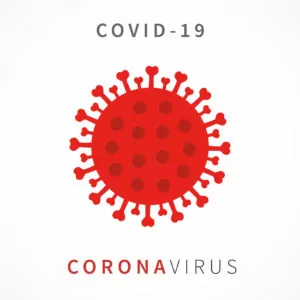How Does COVID Affect Me?
VeDA’s Medical and Scientific Advisors provide advice for some vestibular patients who may be at higher risk for the coronavirus (COVID-19).
VeDA has been receiving many questions about coronavirus (officially known as “2019-Novel Coronavirus,” “SARS-CoV19” or “COVID-19”) in the context of vestibular disorders. We would like to share some of our thoughts with you to help answer some of these questions.
In general, older individuals over the age of 60-70 are at greatest risk of severe COVID-19 infection, although individuals over age 18 have also been reported to have had severe COVID-19 illnesses. At this time, COVID-19 infection is mostly occurring through community transmission.
RISK FACTORS FOR SOME PATIENTS WITH VESTIBULAR DISORDERS
The following populations may be at higher risk for infection and severity of the disease:
- Patients with autoimmune diseases
- Patients receiving corticosteroids or biologics
- Persons over 60 years of age
- Persons with chronic medical problems present in addition to a vestibular disorder
HOW YOU CAN HELP
- Stay at home if you are sick, and restrict contact with other people or pets in your home.
- Cover your cough or sneeze with a tissue, then throw the tissue in the trash.
- Wash your hands often with soap and water for at least 20 seconds.
- Use an alcohol-based hand sanitizer that contains at least 60 percent alcohol if soap and water are not available.
- Avoid touching your eyes, nose, and mouth, particularly with unwashed hands.
- Avoid close contact with people who are sick.
- Clean and disinfect frequently-touched objects and surfaces.
- Do not hoard face masks, as there is already a shortage in many hospitals and clinics, and healthcare teams are at greatest risk of contracting the infection.
- Understand that elective surgeries will be delayed, and only urgent patient visits will be face-to-face for some time.
- Diagnostic testing and physical examinations for vestibular patients are limited.
- Many doctors are expanding telemedicine practice to visually and verbally “see patients.” Doxy.me is a free web-based service for conducting telemedicine. Patients and providers can establish accounts and arrange online appointments with the provider’s office.
SYMPTOMS OF COVID-19
 Mild to severe respiratory illness
Mild to severe respiratory illness- Dry cough
- Difficulty breathing
- Change of smell and/or taste
- Fever greater than 100.4 degrees Fahrenheit
- Diarrhea
- Muscle aches (myalgias)
- Fatigue
By Drs. P. Ashley Wackym and Yuri Agrawal
IF YOU HAVE SYMPTOMS
The CDC recommends the following: “Call ahead to a healthcare professional if you develop fever and symptoms of respiratory illness, such as coughing or difficulty breathing, and have been in close contact with a person known to have COVID-19 or if you live in or have recently traveled to an area with ongoing spread. Tell your healthcare professional about your recent travel or contact. Your healthcare professional will work with your state’s public health department and CDC to determine if you need to be tested.”
Information about COVID-19 is rapidly changing. For the most up-to-date news and travel advisories, visit the Center for Disease Control’s website.
